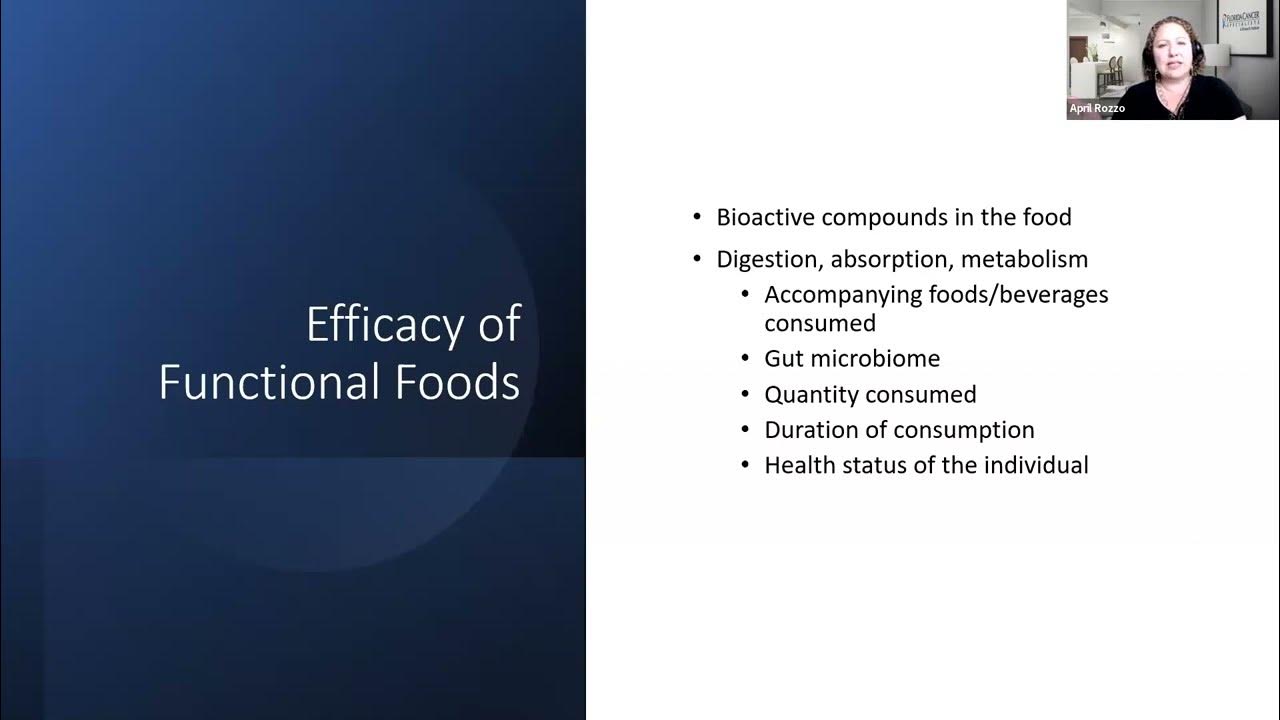What to Eat for H Pylori
Summary
TLDRIn this informative video, a functional and integrative dietitian outlines four essential dietary tips for managing H. pylori infections. The recommendations include consuming soft, cooked foods to aid digestion, incorporating cruciferous vegetables for their antibacterial properties, and choosing antioxidant-rich foods to combat inflammation. Additionally, the video warns against the use of raw apple cider vinegar and digestive aids during infection, emphasizing the importance of medical treatment for eradication. Viewers are encouraged to seek personalized support if symptoms persist, highlighting the complexity of H. pylori-related digestive issues.
Takeaways
- 😀 H. pylori is a bacteria that infects the stomach, causing symptoms like pain, bloating, and digestive issues.
- 😀 To support digestion while dealing with H. pylori, focus on eating cooked, moist, and soft foods.
- 😀 Incorporate cruciferous vegetables like broccoli, cabbage, and cauliflower, which contain compounds that help fight H. pylori.
- 😀 Anti-inflammatory foods rich in antioxidants, such as blueberries, pomegranates, and omega-3 sources, are beneficial.
- 😀 Certain vegetables like ginger and arugula can aid digestion; cooking them can enhance their effectiveness.
- 😀 Avoid raw apple cider vinegar and high doses of hydrochloric acid while H. pylori is active to prevent worsening the infection.
- 😀 Dietary changes alone won't eradicate H. pylori; a treatment plan with antibiotics or herbal protocols is necessary.
- 😀 If experiencing persistent digestive issues, consult a professional to explore potential food sensitivities or other infections.
- 😀 Cook vegetables thoroughly to improve digestibility, and consider soups and stews as preparation methods.
- 😀 Monitor for any food intolerances, especially with foods that may cause bloating, and adjust your diet accordingly.
Q & A
What is H. pylori and what symptoms does it cause?
-H. pylori is a bacteria that infects the stomach, leading to symptoms such as stomach pain, gas, bloating, acid reflux, nausea, vomiting, constipation, and diarrhea. It can also cause mental health issues like anxiety and depression.
How does H. pylori affect digestion?
-H. pylori reduces the production of hydrochloric acid, which is essential for protein digestion and can delay gastric emptying, leading to symptoms like indigestion and constipation.
What types of foods should be prioritized for someone with H. pylori?
-Foods that are cooked, moist, and soft should be prioritized, such as proteins in soups or stews, as they are easier to digest.
Why is it important to eat cooked vegetables like broccoli and cabbage?
-These vegetables contain compounds that can help kill H. pylori and should be consumed cooked to enhance digestibility.
What role do anti-inflammatory foods play in managing H. pylori?
-Anti-inflammatory foods rich in antioxidants, like blueberries and pomegranates, can support overall health and help mitigate symptoms associated with H. pylori infections.
How should ginger and other digestive-supporting foods be consumed?
-Ginger and other supportive vegetables can be included in meals, and they are more effective when cooked, rather than consumed raw.
What are some warnings regarding supplements for H. pylori?
-Raw apple cider vinegar, hydrochloric acid capsules, and digestive bitters should be avoided during an active H. pylori infection, as they can worsen the condition.
Can dietary changes alone eradicate H. pylori?
-No, while dietary changes can help manage symptoms, medical treatment such as antibiotics or herbal protocols is necessary to eradicate H. pylori.
What should someone do if they continue to experience digestive discomfort after H. pylori treatment?
-If digestive discomfort persists, it is advised to seek personalized help, as other factors like food sensitivities or additional infections may be involved.
Why is the way food is cooked important for someone with H. pylori?
-Cooking methods that keep foods moist and soft are crucial because they enhance digestibility, which is particularly important for individuals struggling with H. pylori.
Outlines

This section is available to paid users only. Please upgrade to access this part.
Upgrade NowMindmap

This section is available to paid users only. Please upgrade to access this part.
Upgrade NowKeywords

This section is available to paid users only. Please upgrade to access this part.
Upgrade NowHighlights

This section is available to paid users only. Please upgrade to access this part.
Upgrade NowTranscripts

This section is available to paid users only. Please upgrade to access this part.
Upgrade NowBrowse More Related Video

Functional Foods - Health Benefits Beyond Nutrients

How Victoria Lost 30 Pounds with PCOS | Her 5 tips for PCOS weight loss!

Video 1: Full Diet Consultation

How I Created AI Agents That Do My Work For Me 🔥

Tips & Complete RoadMap to become a Data Scientist in 2024

How to Complete a Nutrition Assessment in the Acute Care Setting + NFPE
5.0 / 5 (0 votes)